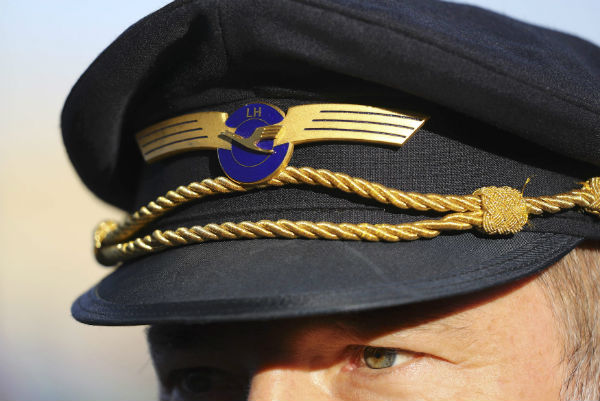Settles fight dating back to May 2012

BERLIN (Reuters) — Lufthansa and its pilots' union have reached a wide-ranging agreement on pay, pensions and working practices, bringing an end to years of wrangling and strikes and boosting shares in the German company.
The airline and its other full-service rivals have long been seeking ways to bring pilot costs down as they vie with younger, leaner Gulf carriers on long-haul routes and fast-growing low-cost rivals on short-haul routes.
However, Lufthansa's efforts to overhaul its labour agreement with the Vereinigung Cockpit union, which represents about 5,400 pilots at its Lufthansa, Germanwings and Cargo units, had led to repeated strikes.
The agreement announced by the two sides on Wednesday includes a 10-year pay deal, a shift from defined benefit to defined contribution pensions and more flexible working hours, in exchange for giving pilots working for the main airline more job opportunities.
The pilots will receive a pay increase amounting to an 11.4 per cent rise for the period between May 2012, when the last collective contract expired, until June 2022, plus a one-off payment equivalent to 1.8 times the monthly salary.
Lufthansa pilots are well paid by industry standards. A pilot at Lufthansa earns on average 180,000 euros a year before tax, though a captain on the highest pay level can earn as much as 22,000 euros a month before tax.
The new deal promises to remove the risk of any pilot strikes over pay until 2022 and the union said it would result in an average 15 per cent reduction in the airline's pilot costs.
Air France KLM is also trying to bring down pilot costs at its French airline, with a scheme dubbed Boost also aiming to reduce those costs by 15 percent, but only for a small part of its fleet.
Lufthansa's share price, already up 16 per cent this year, rose a further 1.6 per cent to 14.38 euros.
Pension liabilities
The deal means Lufthansa will follow rival IAG, which owns British Airways, Iberia and Aer Lingus, in making progress in bringing costs down at its main brand.
The company is due to provide more details and give a profit forecast for 2017 when it reports annual results on Thursday.
It said on Wednesday the agreement on pensions and early retirement payments would boost its profit in 2017 and reduce pension liabilities by an amount in the high hundreds of millions of euros.
Independent aviation consultant John Strickland said it looked as though significant progress had been made, although more details were needed.
"Lufthansa's pilots will still be amongst the most highly remunerated, but given the developing global pilot shortage this deal may turn out to be a valuable protection for the airline against this problem," he told Reuters.
Before the announcement on Wednesday analysts had been predicting the company's earnings before interest and tax would fall this year to around 1.38 billion euros from an estimated 1.75 billion in 2016.
Lufthansa said at least 325 of its planes will be flown by pilots under the new German collective agreement.
Management had previously raised the prospect of shifting 40 new planes to crew from other parts of the group or even setting up a new subsidiary to keep costs down.
"This agreement on a wide-ranging solution offers a major chance to settle the pay conflict that has been going on for years," a spokesman for the Vereinigung Cockpit union said in a statement.
The pilots agreed to join other key Lufthansa staff in moving to a defined contribution pension scheme and to gradually increase the age at which pilots can take early retirement to 60 years from 55 previously.




